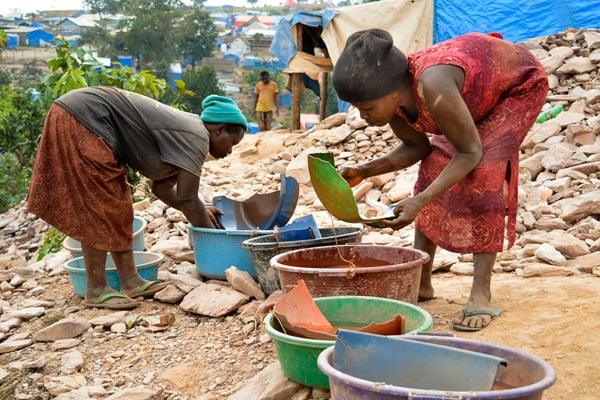Prime
Your child needs support after Uneb results are out

Emilly Comfort Maractho
Finally, Uganda Advanced Certificate of Examination 2020 results have been released by the Uganda National Examinations Board (Uneb). One can only imagine what it was like for Uneb to conduct these examinations, and release results, for the year 2020. Given the circumstance, the exam managers and all those involved are congratulated. It must be a huge sigh of relief for parents, teachers and students.
The big news is that female candidates did better than their male counterparts. The results released show that there was lower failure rate among female candidates than males, with higher percentage passes at the upper levels of three and two principle passes, while leading in Arts, Mathematics and Physics. One reporter summed it all up as ‘a quite unusual stance’.
I will not get into why good performance of female candidates is such an ‘unusual stance’, because that should be commentary for another day. Having spent two days with amazing journalists talking about the women, peace and security agenda, thanks to the Coalition for Action on 1325 – CoACT and their partners, I am feeling good and at peace.
So, for now, it is hearty congratulations to all the candidates who performed well, especially the female candidates. For these, the future is bright. What is even more exciting is that finally there may be some form of real transition, where students from one level to the next – from O-Level to A-Level and to university or other institutions. At the university, we have been in a ‘wait and watch’ mode, so this is something to look forward to, for higher education institutes.
The real issue for majority of learners and parents is what next. When will school re-open? Which school? What subject combination is appropriate in S5? Do I go to S5 or to a vocational school? If I go to the university, which one will be good for me? And what course might the learner offer at the university or higher institution of learning? Which institution could give my child the best education and shape their future?
The questions as they say, may be endless. The dilemma huge, especially now. For those who have passed well, these questions may not be difficult to answer. For those who attended the good schools, these too, may not be a big deal. And for those who had role models or their parents can afford to take them to the next level, their path is clearer.
However, for majority of learners and their parents, these questions are real, with no obvious answers. For some learners, it is that time when it feels like your life is over, because your dream of getting into that school or programme has been shattered by lower aggregate grades.
Before examinations, we speak a different language, encouraging the students to do their best. After examinations, we help them see beyond their grades, and be kind to those who did not do well. It is no time to lecture the student on their performance, but to seek solutions at that point, and encourage them to see things a little differently, while holding their hands. More than ever, it is not the end of the road if your grades cannot give you the expected outcome.
Both parents and children should seek advice from the right places. As soon as the results are out, ask someone who is in a better position to understand what they mean for you or your child for advice.
Be honest with them about the child’s capabilities and your expectations or financial situation. Over the years, parents have contacted me for advise, and after talking, their perspective has changed.
In one case several years ago, a mother was contemplating sending her daughter to a private university since her grades were not very competitive. The girl had been admitted to a national teachers’ training college on government sponsorship. I advised her to let the girl study on government, and that after two years and working, she could go to the university. They took the advice. The girl did her diploma teaching course and passed well. She later did a degree and now has a good job, which utilises her teaching skills. It saved them financial stress. Not everyone may follow the same path. What I have seen is so many people out there have not followed the proverbial ‘straight’ or ‘correct line’, what matters is that they have made it.
Sometimes even the bend in the road is a blessing. The university is not going anywhere, so if it is your goal to get a degree, you will get it, one time or another. To make the right decisions, parents should be mindful of the children’s real talent and track record of performance over time, and their financial situation. Be encouraged, that there are several possibilities, with great outcomes.
When exam results are out, total support is what your child deserves. That includes when the results are less than expected.
Ms Maractho (PhD) is the head and senior lecturer, Department of Journalism and Media Studies at UCU.
[email protected]


